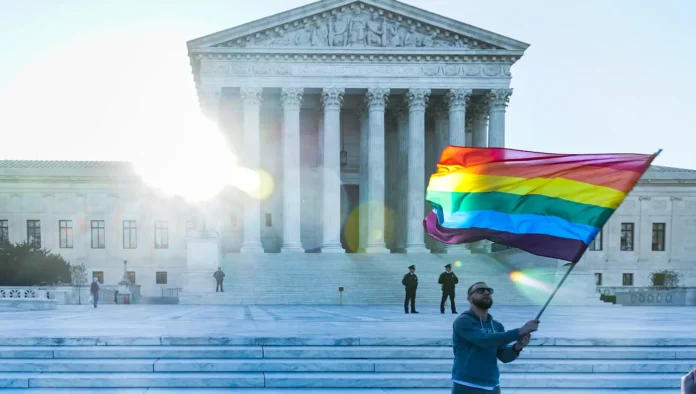On 27 June 2025, in a 6-3 ruling, the U.S. Supreme Court gave a landmark judgment that deepens America’s culture war over education, stating that parents have the constitutional right to exempt their children from classroom lessons featuring LGBTQ+-themed storybooks. The landmark decision in Mahmoud v. Taylor sides with religious families in Maryland who argued that books like And Tango Makes Three and Uncle Bobby’s Wedding violated their beliefs about marriage and gender.
The judge in favour of the conservative majority submitted that public schools cannot make students take classes that significantly jeopardise their parents’ religious beliefs. “The government burdens religious exercise when it demands parents surrender their right to direct their children’s upbringing as a condition for receiving public education,” he stated. The ruling immediately overturns widespread parental objections about banned opt-outs.
Muslim, Catholic, and Orthodox Christian plaintiffs who sued the school district because the books promoted ideas that were incompatible with their faith have won a major victory thanks to the verdict. The district’s materials to reflect diverse families included the titles on the shelf, Pride Puppy! (about a dog lost at a Pride parade) and I Am Jazz (about the experience of a transgender child).
Joined by the Court’s liberal members, Justice Sonia Sotomayor dissentingly cautioned that the decision “transforms classrooms from bridges to battlegrounds” by enabling parents to veto content they find objectionable. It might lead to challenges to courses on evolution, interracial marriage, or even Harry Potter, she said, and schools would be forced to remove everything that might be deemed controversial from their curriculum.
Despite the majority’s limited wording in its ruling, the precedent allows parents nationwide to request more extensive religious exemptions, indicating the Court’s ongoing decision to give individual religious liberty more weight than institutional inclusiveness.
Education organisations worry that the verdict may cause classrooms to become more divided, with institutions possibly stifling debates to stay out of legal hot water. LGBTQ+ supporters warn that the ruling solidifies the Court’s role in transforming America’s education culture conflicts as districts rush to modify their policies.

